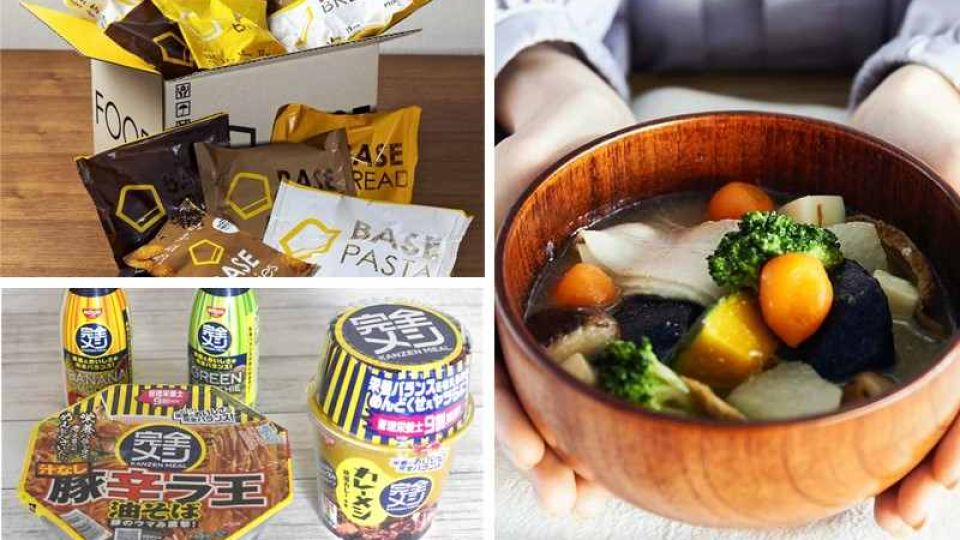September 13, 2022
TOKYO – Can consuming “complete nutritional foods” provide all the nutrients necessary for daily life, as these products claim?
These foods have traditionally been beverage-type products, but drawing attention these days are products such as bread and instant noodles that offer more options for people who don’t eat three square meals.
Unlike what the Health, Labor and Welfare Ministry categorizes as “food with health claims” that are labeled to state certain functions for the nutritional ingredients contained, there is no clear definition of a complete nutritional food.
Most domestic products seem to be made in consideration of the standard intake of 33 nutrients, including vitamins, minerals, carbohydrates, proteins and fats, as indicated in the “Dietary Reference Intakes for Japanese” guideline published by the health ministry.
Three to four times a week for breakfast, a 21-year-old female college student living in Kanagawa Prefecture eats bread that claims to be a complete nutritional food.
“It’s difficult to prepare a well-balanced meal in the morning,” she said. “I can eat this bread every day because it has a wide variety of flavors and types.”
The bread she eats is made by Base Food, Inc., which was established in 2016. In addition to bread, the company has developed pasta and cookies in its range of complete nutritional food. The company blends more than 10 ingredients, including soybeans and kombu, into a whole-grain base, and one serving provides more than one-third of the nutrients in the standard daily dietary intake.
Base Food Chief Executive Officer Shun Hashimoto said he had wanted to end his habit of eating out, but had been unsuccessful in his attempts to cook for himself.
“For busy working people, it is difficult to keep cooking several healthy dishes per meal,” he said. “Bread and noodles make it easy to keep up with healthy eating.”
Seek variety, balance
Solid-type nutritional supplements have been available for more than 30 years, but the first product marketed as a complete nutritional meal is said to be Soylent, from a U.S. startup, about 10 years ago. Since then, the trend toward simplified meals and health consciousness has continued to grow.
KBV Research, a firm with bases in the United States and other countries, estimates that the global market for complete nutritional foods will grow at an average annual rate of 6.5% from 2021 and will expand to $6.3 billion by 2027.
Nissin Food Products Co. launched in May instant noodle and instant rice products that are said to be complete nutritional foods. These products provide all 33 nutrients in the “Dietary Reference Intakes for Japanese.” The products are designed to be appetizing and nutritionally balanced.
“We want people who are unable to prepare healthy meals to try them,” said Nissin brand manager Daisuke Kaneko.
Misovation Inc. sells complete nutritional foods in the form of miso soup that contain all of the dietary reference nutrients except for fat, carbohydrates, and six vitamins and minerals.
If a diet consists only of these products, however, there is a risk that important nutrients such as polyphenols, which are not included in the dietary reference of 33, are not being consumed.
“Keep in mind to eat a well-balanced diet with a variety of items as much as possible,” said registered dietitian Ayaka Miki. “If you are too busy or something, I recommend only replacing one meal with such products.”

